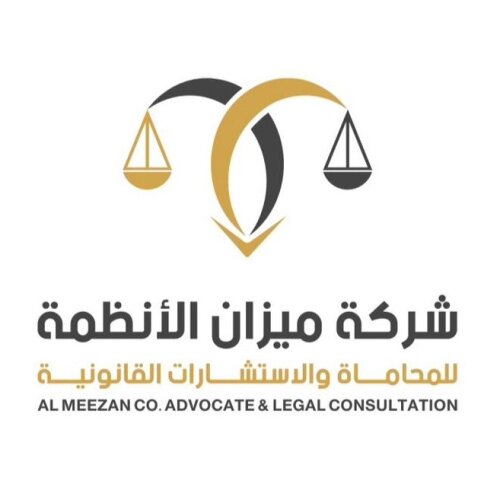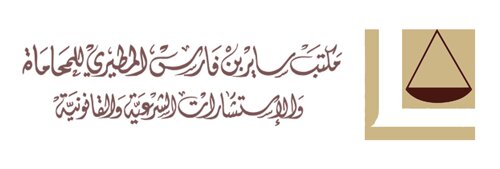Best Elder Abuse Law Lawyers in Saudi Arabia
Share your needs with us, get contacted by law firms.
Free. Takes 2 min.
Or refine your search by selecting a city:
List of the best lawyers in Saudi Arabia
About Elder Abuse Law in Saudi Arabia
Elder abuse law in Saudi Arabia is designed to protect the rights and well-being of older adults. It addresses various forms of mistreatment, whether physical, emotional, financial, or neglect. As the population ages, the government and legal system are paying increasing attention to safeguarding elderly individuals from abuse and exploitation. Key legal provisions in this area often intersect with broader family and civil laws, reflecting the cultural values of respect and care for elders.
Why You May Need a Lawyer
There are several situations where individuals may require legal assistance in matters related to elder abuse. These include cases where an elderly person is suspected of being financially exploited by a caregiver or family member, situations involving physical or emotional abuse, and circumstances where an elderly person is being neglected in a care facility. Additionally, legal advice may be necessary when contesting guardianship or power of attorney arrangements that may not serve the elder's best interests.
Local Laws Overview
Saudi Arabia’s legal system incorporates Sharia law, which emphasizes family obligations and respect for the elderly. Several laws outline the responsibilities of family members and caregivers to provide for and protect elders. Abuse can be penalized under criminal laws, highlighting the seriousness with which such matters are treated. Recent legal reforms have aimed at strengthening the framework for elder protection, with specific statutes addressing penalties for those who fail in their duties or harm elderly individuals.
Frequently Asked Questions
What constitutes elder abuse under Saudi Arabian law?
Elder abuse involves physical, emotional, financial abuse, or neglect of an older person. The law recognizes these acts as serious offenses.
Who is considered an elder in the context of legal protections?
While there is no universally fixed age, elders are typically defined as those aged 60 and above, consistent with international norms.
Can elder abuse be reported anonymously?
Yes, you can report elder abuse anonymously to the authorities, such as the Ministry of Human Resources and Social Development.
What are the penalties for elder abuse?
Penalties for elder abuse may include fines, imprisonment, or both, depending on the severity and nature of the abuse.
How do I prove financial exploitation of an elder?
Evidence collection, such as bank statements, witness testimonies, and expert assessments, can help prove financial exploitation.
Is elder neglect considered a crime?
Yes, neglect, especially by a caregiver or family member with duty of care, is considered a form of elder abuse and is punishable by law.
How can I ensure an elder's safety if I suspect abuse?
Contact local authorities, such as the Ministry of Interior, and consider consulting a lawyer to take appropriate legal measures.
Are there legal protections for caregivers accused of abuse unjustly?
Yes, individuals falsely accused of elder abuse have the right to legal defense and due process under Saudi law.
What role does Islamic law play in elder abuse cases?
Islamic law underpins many aspects of family responsibility and respect towards elders, influencing the enforcement and interpretation of elder abuse laws.
Can a lawyer help in drafting a power of attorney to prevent elder abuse?
Yes, a legal expert can assist in drafting a power of attorney to ensure an elder's financial and personal interests are protected.
Additional Resources
Key resources for those seeking advice on elder abuse include the Ministry of Human Resources and Social Development, local legal aid clinics, and elder support organizations. They can provide guidance, support, and sometimes legal advice to those concerned about elder abuse.
Next Steps
If you suspect elder abuse or need legal assistance, the first step is to consult with a lawyer specializing in elder law. They can provide guidance on the relevant legal framework, options for legal action, and support throughout the process. Additionally, consider reaching out to governmental bodies or elder advocacy groups for support and to report any suspected abuse. Always prioritize the safety and well-being of the elder involved while taking legal steps.
Lawzana helps you find the best lawyers and law firms in Saudi Arabia through a curated and pre-screened list of qualified legal professionals. Our platform offers rankings and detailed profiles of attorneys and law firms, allowing you to compare based on practice areas, including Elder Abuse Law, experience, and client feedback.
Each profile includes a description of the firm's areas of practice, client reviews, team members and partners, year of establishment, spoken languages, office locations, contact information, social media presence, and any published articles or resources. Most firms on our platform speak English and are experienced in both local and international legal matters.
Get a quote from top-rated law firms in Saudi Arabia — quickly, securely, and without unnecessary hassle.
Disclaimer:
The information provided on this page is for general informational purposes only and does not constitute legal advice. While we strive to ensure the accuracy and relevance of the content, legal information may change over time, and interpretations of the law can vary. You should always consult with a qualified legal professional for advice specific to your situation.
We disclaim all liability for actions taken or not taken based on the content of this page. If you believe any information is incorrect or outdated, please contact us, and we will review and update it where appropriate.
Browse elder abuse law law firms by city in Saudi Arabia
Refine your search by selecting a city.












